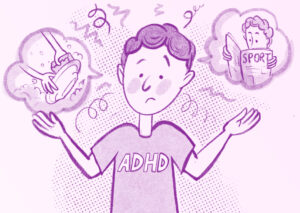Depression is a widespread mental health condition that affects millions of people worldwide. It can feel overwhelming, isolating, and exhausting. While professional treatment—such as therapy and medication—is often essential for managing depression, self-care plays a crucial role in supporting your mental health and improving your quality of life. Practicing self-care means actively taking steps to nurture your emotional, physical, and mental well-being.
In this comprehensive blog, we’ll explore practical self-care tips for coping with depression. These strategies can help you navigate the challenges of depression, build resilience, and foster a more balanced, fulfilling life. Whether you are currently experiencing depression or supporting someone who is, these tips offer valuable tools for everyday life.
Table of Contents
ToggleUnderstanding the Role of Self-Care in Depression
Self-care is not just about pampering yourself or occasional relaxation. It’s a deliberate, ongoing practice of prioritizing your health and well-being. For people with depression, self-care can:
- Reduce symptoms such as fatigue, sadness, and anxiety
- Improve mood and energy levels
- Enhance coping skills and emotional regulation
- Promote a sense of control and empowerment
- Support recovery alongside professional treatment
Remember, self-care does not replace professional help but complements it, making your healing journey more effective.
1. Establish a Daily Routine
Depression often disrupts daily life, causing irregular sleep, eating patterns, and difficulty concentrating. Creating a consistent daily routine can help restore order and stability.
Tips:
- Wake up and go to bed at the same time every day
- Schedule regular meals and snacks
- Plan simple daily activities, like a short walk or reading
- Break tasks into manageable steps to avoid feeling overwhelmed
Having a routine provides structure and can reduce the inertia that depression often brings.
2. Prioritize Sleep Hygiene
Poor sleep worsens depression symptoms and impairs cognitive function. Good sleep hygiene supports restorative rest and mental clarity.
Tips:
- Create a calming bedtime routine (e.g., reading, warm bath)
- Limit screen time at least one hour before bed
- Keep your bedroom cool, dark, and quiet
- Avoid caffeine and heavy meals close to bedtime
- Get up and move if you can’t sleep after 20 minutes, then return to bed when tired
3. Nourish Your Body with Balanced Nutrition
Your brain needs proper nutrients to function well and regulate mood. Depression can affect appetite, so eating well is especially important.
Tips:
- Eat regular meals with a balance of protein, healthy fats, and complex carbohydrates
- Incorporate fruits, vegetables, and whole grains
- Stay hydrated by drinking enough water
- Limit processed foods, sugar, and excessive caffeine or alcohol
Healthy nutrition supports energy, focus, and emotional stability.
4. Engage in Regular Physical Activity
Exercise is a powerful self-care tool that can reduce depressive symptoms by releasing endorphins and improving brain function.
Tips:
- Start small: even a 10-minute walk counts
- Choose activities you enjoy (dancing, yoga, swimming)
- Try group activities for social connection, if possible
- Set achievable goals and celebrate progress
Physical activity helps combat fatigue and lifts mood.
5. Practice Mindfulness and Relaxation Techniques
Mindfulness teaches you to observe your thoughts and feelings without judgment, which can reduce anxiety and depressive rumination.
Tips:
- Try guided meditation apps or videos
- Practice deep breathing exercises (e.g., 4-7-8 breathing)
- Engage in progressive muscle relaxation
- Spend time in nature focusing on sensory experiences
These practices help ground you in the present and reduce overwhelming emotions.
6. Connect with Others
Social isolation worsens depression. Meaningful connections provide emotional support, reduce loneliness, and foster hope.
Tips:
- Reach out to trusted friends or family members
- Join support groups or online communities
- Volunteer or participate in community activities
- Set small social goals if large gatherings feel overwhelming
Even brief positive interactions can improve mood.
7. Limit Stressors When Possible
Stress contributes to depressive symptoms. While it’s impossible to avoid all stress, managing and reducing it can aid recovery.
Tips:
- Identify your main stressors (work, relationships, finances)
- Set boundaries to protect your time and energy
- Learn to say no without guilt
- Practice problem-solving and time management skills
- Seek professional help for ongoing stress
Reducing stress helps preserve your emotional resources.
8. Engage in Activities That Bring Joy
Depression can rob you of interest and pleasure. Actively seeking out enjoyable activities, even small ones, can counteract this.
Tips:
- Revisit hobbies or creative outlets you once loved
- Try new activities or classes to spark interest
- Use pleasurable activities as rewards for accomplishing tasks
- Allow yourself permission to enjoy moments without guilt
Pleasure and accomplishment boost motivation and self-esteem.
9. Set Realistic Goals and Celebrate Achievements
Depression can make even simple tasks feel monumental. Setting realistic, achievable goals helps build momentum and confidence.
Tips:
- Break larger goals into small, actionable steps
- Prioritize what is most important or urgent
- Use planners, apps, or journals to track progress
- Celebrate every success, no matter how small
Goal-setting encourages a sense of purpose and control.
10. Practice Self-Compassion and Patience
Be kind to yourself during difficult times. Depression is a medical condition, not a personal failing.
Tips:
- Acknowledge your feelings without judgment
- Avoid harsh self-criticism
- Use affirmations or positive self-talk
- Allow yourself time to heal and rest
Self-compassion nurtures resilience and reduces feelings of shame.
When to Seek Professional Help
While self-care is vital, depression often requires support from mental health professionals. Signs you should seek help include:
- Persistent sadness or hopelessness lasting more than two weeks
- Thoughts of self-harm or suicide
- Severe difficulty functioning at work, school, or home
- Significant changes in sleep, appetite, or weight
- Withdrawal from social connections and interests
Professional treatment may include therapy, medication, or a combination. Self-care and treatment together offer the best chance for recovery.
Supporting a Loved One with Depression
If someone you care about is experiencing depression, encourage their self-care efforts and professional treatment. Listen without judgment, offer practical support, and be patient. Your empathy can make a meaningful difference.
Final Thoughts: Embracing Self-Care as Part of Healing
Coping with depression is challenging, but self-care empowers you to take small, meaningful steps toward healing. By nurturing your body, mind, and spirit, you create a foundation for recovery and a healthier future. Remember, you are not alone, and help is available.
If you or someone you know struggles with depression, reaching out to a psychologist like Arpan Sarma can provide personalized guidance and professional support. Together with self-care, therapy can transform your journey toward well-being.







